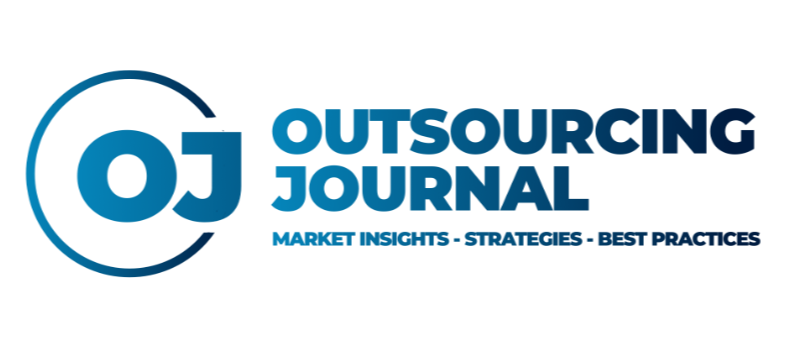The following analysis is part of the 3rd (2022) edition of the Outsourcing Destination Guide Egypt, published by German Outsourcing Association. If you want to skip the Location and History part and jump directly to ICT sector, labor market, salaries and education you can download the full guide here (free).
Location, History and International Relations
The Arab Republic of Egypt, is located in northeast Africa on the Mediterranean Sea in the north and the Red Sea in the east, which divides Africa from Asia, and connecting them both through the Suez Canal, the heart of the maritime silkroad, that enables a direct shipping trade route between Europe, Asia, and East-Africa.
Egypt shares direct borders with Libya in west, the Sudan in the south, as well as Palestine and Israel, over the Sinai Peninsula, in the east, a land bridge between Africa and Asia, which makes it one of the few contiguous transcontinental countries in the world and a truly unique geographic and strategic location. Egypt’s history has been rich and prosperous due to the Nile with its fertile banks and the accomplishments and ingenuity of its people which made it one of the cradles of civilization. The country not only harbors one of the Seven Wonders of the Ancient World, the Great Pyramid of Giza, but also produced, with the hieroglyphs, one of the first known writing systems and birthed, with Cairo and Alexandria, some of the largest and most vibrant metropolitan areas that continued to exist over the millennia.
Modern Egypt however emerged in 1922, when it gained independence from the British Empire as a monarchy. Following the 1952 revolution the last King Farouk was toppled and a republic proclaimed. The Arab Republic of Egypt is a multi-party system wit over 100 registered political parties. Since 2014 General Abdel Fattah El-Sisi, a retired military officer and party independent politician serves as the sixth and current president. Egypt is founding member of the United Nations, the Non-Aligned Movement, Arab League, African Union, the Organization of Islamic Cooperation, and the World Youth Forum.
Due to its proximity the European Union is Egypts first trade partner and its largest source of investment (EU 2017). Consequently Egypt has signed the Euro-Mediterranean Agreement establishing an Association (EMAA) and the European Neighborhood Policy (ENP) with the EU and several other Trade Agreements like the Greater Arab Free Trade Agreement (GAFTA), Common Market for Eastern and Southern Africa (COMESEA), Egypt- MERCOSUR, as well as many bilateral ones. It is also a WTO and GATT member and is a Major non-NATO ally (MNNA) of the United States.
Demographics, Language, and Religion
With it’s 1,010,408 km² territory Egypt is 29th largest country in the world and the 14th most populous with approximately 101,480,000 inhabitants (2021) (Statista 2021). Over 90% of the people live along the banks of the Nile, its delta, the Suez Canal, and almost one third alone in the greater Cairo metropolitan zone, which makes these regions one of the world’s most densely populated area. Only small communities live scattered throughout the desert regions and around old trade and transportation routes.
The country has staggering demographics with over 60% Egyptians being under the age of 30 and just around 5% over 65, making it one of the most youthful population in the world (World Population Review 2022). These demographics paired with the fact that Islam is the official state religion makes Egypt the biggest Sunni Muslim state in the Arab world (≈90%) but it also has a large Christian community (≈10%) (Pew research center 2012). Thus Egyptian Arabic is the official language and the most widely understood in Middle East-North Africa due to the popularity of Egyptian music and cinema throughout the Arabic speaking world. Nevertheless there is a plethora of minority languages, like Coptic, Noblin, Beja, or Domari. English, French and German are the main Foreign languages taught in schools and universities.
Economy
The Egyptian economy is a lower middle-income economy generally categorized as a developing or emerging economy and its currency is called the Egyptian pound.
Continue reading our ICT sector analysis in the 2022 Edition of the Outsourcing Destination Guide Egypt, with the following chapters:
- Office space and infrastructure
- ICT and BPO sector
- Education
- Labor market
The guide is available as free download at www.outsourcing-destinations.org

